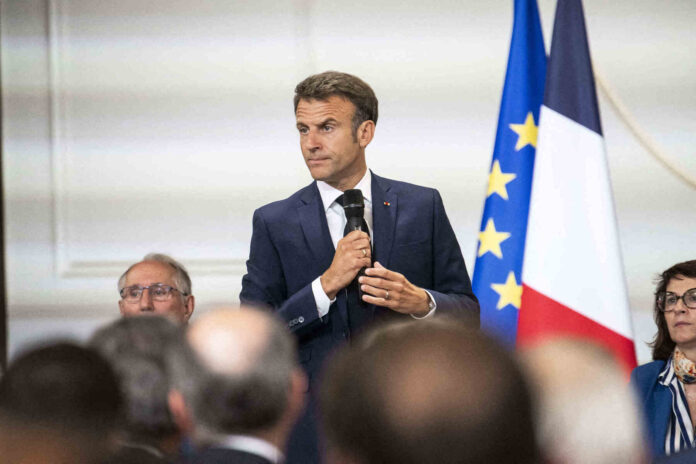On April 17, Emmanuel Macron set the course. “Next July 14 should allow us to take stock. We have 100 days of peace, unity, ambitions and actions in the service of France ahead of us.” The only wish of the president at that time: to turn the long sequence of the pension reform. Adopted by article 49.3, it brought together millions of French people in the streets and rocked a majority more weakened than ever.
With the “100 days”, Emmanuel Macron must therefore evaluate his government but himself at the same time, a bit like a class council in the end. But was this period, which does not really last 100 days but rather 88, really enough to restore order within a Hexagon which twists over the months? Even if the involvement of the Head of State gives the impression of a real desire to put France back on the right track, he is far from having softened the rebellion.
It must also be said that the news is associated with appeasement. Indeed, Emmanuel Macron does not neglect memorial events. The President travels notably to Mont-Saint-Michel, on June 5, to celebrate the millennium of the abbey. The next day, he celebrates the landing and on July 7, he pays tribute to Léon Gautier, the last French veteran of D-Day who died on July 3.
Except that the agenda of the French president has also been confronted with burning news. First the Annecy attack on June 8, where six people including four young children were stabbed. And above all, the death of Nahel, 17 years old and killed by the shooting of a police officer, on June 27. If each time, Emmanuel Macron took care not to add oil to the fire, it is without counting on the political recovery in the first case and the explosion of the districts in the second.
In addition, there is uncertainty about the results of the 100 days, but the presidential camp is also anxiously awaiting a possible reshuffle. This is the great unknown within the government, even if the latest rumors of a reshuffle this weekend have finally been extinguished by people close to the president. Despite everything, some ministers like Marlène Schiappa, deep in the Marianne Fund affair, or Pap Ndiaye, strongly criticized by his own camp. Without forgetting the number one: Elisabeth Borne. She is constantly questioned and tensions have arisen on several occasions between the Prime Minister and her hierarchical superior.
If the 100 days are not enough, why not extend this time intended to gather opinion? This is what several parliamentarians think, who would like the Head of State to set a new horizon. “We must set a course, otherwise we will be accused of immobility”, notes a Renaissance deputy for BFMTV.
Beyond a new deadline, the members of the majority are above all expecting a clearer orientation on the substance. What is the president’s exact plan for his second five-year term? A Renaissance deputy worries: “We make laws, we don’t even know why. The president needs to say ‘my five-year term begins today'”.
In the meantime, it could be that the president does not speak on his political agenda on July 14. According to BFMTV, he could wait until July 26, which corresponds to the day for the end of the “100 days”. Moreover, this date also coincides with the end of the parliamentary session, in other words before the holidays of the deputies.















